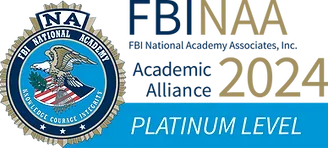PURPOSE
This policy outlines how Global Leadership Institute (GLI) provides a supportive learning and teaching environment that is responsive to individual student needs with a strong emphasis regarding student engagement and online learning.
PRINCIPLES
· GLI will provide staff and students with information regarding the various facilities and resources that are available to provide learning support including English language support, a pre-pathway program and academic support during their course.
· GLI will foster an environment where students feel that they are supported to help achieve their learning outcomes particularly with an on-line learning capacity.
· GLI acknowledges that some students need a supportive teaching and learning environment that is responsive to individual student needs particularly with an online learning program.
· GLI acknowledges at risk students who may not be able to achieve the academic results of which they are capable and would need academic support to realise that potential including pre- and professional pathway programs.
· GLI will use the Student Handbook to inform students of the available support services offered during their course.
ROLES AND RESPONSIBILITIES
· Staff educator and delegated supervisors advise Program Directors of students who require learning support.
· Student Support Officers are responsible to ensure that the Academic Dean and Program Directors are notified about the progress of students identified with needing learning support.
· The Registrar is responsible to ensure that the policy is implemented across all departments of the Institute.
Scope
All staff and students
Key Stakeholder
All staff and students
Proceedure
STUDENT ONBOARDING AND ORIENTATION
All students are required to attend the online Orientation (Student Handbook) prior to commencement of classes. Some students may attend a pre- and/or pathway program. The Program Director and Registrar are responsible for the delivery of Orientation or pathway programs to all students. The online Orientation and pathway program may encompass a range of educational, course planning, navigation to policies and procedures, access to learning management system, independent living, e learning and social information sessions. These include:
Online Orientation
· registration and student identification cards;
· website navigation;
· studying online requirements including assessment;
· access to e-library resources;
· Learning Management System including IT capacity;
· course requirements;
· individual course advice and enrolment check;
· academic expectations including academic integrity;
· Student Support Services information.
Entry and Pathway Programs
· registration, ID and campus tour;
· living and studying in Australia;
· Library orientation;
· Learning Management System and IT systems introduction;
· course planning;
· individual course advice and enrolment check;
· academic expectations including academic integrity;
· Student Support Services information .
Orientation sessions and pathway programs are supported through appropriate resources posted on the website and the Student Learning Management System (Moodle). The Student Support Officer or delegated member of staff is responsible for checking student involvement at Orientation and pre-pathway programs and following up with students who do not participate. The Orientation and follow up procedures are designed to ensure that all students are appropriately inducted into their programs and courses, both on-line and in house.
IDENTIFICATION OF INDIVIDUAL STUDENT NEEDS
Close oversight of students is maintained by lecturers and Student Support staff. Participation in classes and online activities and assignment submissions are monitored. Students who fail to participate regularly and/or who fail to submit one or more assessments are contacted by the Program Director. The Program Director may identify these students as having learning support needs. The Program Director will consult with each student identified as having learning support needs. Learning support needs of students may arise from issues associated with:
· English language;
· literacy;
· numeracy;
· study techniques including on-line learning skills;
· time management;
· organisational skills;
· working with others;
· IT
· course requirements;
· workplace commitments.
Learner support needs may be identified:
· by poor participation or poor assessment outcomes;
· during initial discussions with academic staff during commencement;
· by self-referral by a student;
· when a lecturer/tutor has identified that a learner is experiencing difficulty (this may be by observation with on-line learning, classroom or upon analysis of assessment items submitted early in the term);
· by poor progress through the course;
· when a learner seeks assistance from the Student Support Officer, Program Director or some other member of staff;
· after a student subject evaluation survey;
· during an interview with a student;
· as part of an intervention strategy agreed between the learner and the Program Director.
ONGOING STUDENT LEARNING SUPPORT
Programs commence during Orientation to assist students with the transition to a postgraduate tertiary level study regime. The programs include workshops, individual interviews with students and informal support provided by lecturers/tutors. The support programs utilise a wide range of resources available on Moodle system, library resources and on-line services. Individual assistance is available from specialist support staff.
The Student Support Officer or Academic staff will provide academic advice to students, such as time management, exam preparation, essay and report writing, referencing, avoiding plagiarism, library research, and stress management. The Student Support Officer will also provide individual counselling with students by referral from staff or self-referral by students as required. Appointments can be made in person, by email or at the campus reception desk. Times available for appointments are advertised and sent in electronic form to each student.
DOCUMENTATION OF STUDENTS SEEKING SUPPORT
Records are maintained when students are referred for additional academic or English language support. The Program Director also keep records of students seeking assistance. Summary data form part of the educational metrics reported to the Learning, Teaching and Curriculum Committee (LTCC).
ACADEMIC STAFF CONSULTATION
· In-class consultation: Individual student consultations with the subject lecturer, tutor or other appropriate academic are an integral part of the learning experience for each subject. The normal weekly teaching pattern provides face to face lectures and a structured tutorial. Further diagnostic tutorials are scheduled to allow students the opportunity to clarify points of confusion, discuss aspects of the subject in more detail and obtain feedback on their assignments, both in draft form and on completed work.
· Electronic consultation: Each unit is enhanced by an individual web-based support site through Moodle. Moodle provides students with access to unit resources. To enhance student engagement, it includes a ‘forum’ and group email facilities that allow for the posing of questions by students and lecturers and response by both students and lecturers. Such community-based facilities are moderated and controlled by the unit coordinator. All students enrolled in a unit have access to the unit web page.
ENGLISH LANGUAGE AND ACADEMIC ASSISTANCE
English language and academic advice workshops and resources include such topics as essay writing, report writing, APA referencing, avoiding plagiarism, using Turnitin, making oral presentations, and examination tips.
LIBRARY SERVICES
Library information sessions are held during Orientation sessions. Additional workshops (e.g. via video conferencing) are scheduled throughout the year to assist students to most effectively utilise the range of library resources, including the available electronic databases. These workshops are designed to improve the information literacy skills of students. Library staff are available throughout library opening hours to give individual assistance and advice to students.
Information technology staff are available to help students with the technology available to them and with connectivity issues related to their course.





